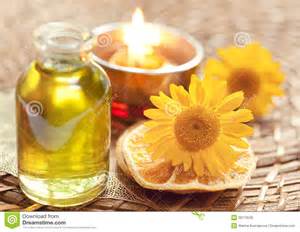





What is Subtle Aromatherapy ?
What is Subtle Aromatherapy? in using this expression I have in mind primarily the use of essential oils in non-physical ways. Subtle Aromatherapy makes use of the oils to affect the subtle body, the psyche and, indeed, the soul. In doing so, the user draws on the subtle energetic or vibrational qualities of essential oils, rather than their physical properties.
The expression can be used to denote the use of essential oils to heal the physical body by influencing the subtle energetic body of the recipient so Subtle Aromatherapy may be described as one form of vibrational healing. It also embraces the use of essential oils as an aid to meditation, affirmations, visualization and all transformative techniques based on inner work.
Because of the versatility of essential oils, they can be used in many different ways. When they are used with massage to treat a variety of physical ills ( and this is the most important method of application in what I shall call 'traditional' aromatherapy) they act on the body in a very gentle, though effective way.
This, though, is still a physical therapy and as such is not the main focus of this book, even though it is true that a physical aromatherapy massage can often have a profound and beneficial effects on a less tangible level.Most clients report a feeling of uplift or release of anxiety after such treatment but that is still not Subtle Aromatherapy.
In Subtle Aromatherapy the therapist may not touch the client's body at all, or may incorporate elements of subtle aromatherapy into a hands-on-treatment. In some instances there may be no need for a therapist, as in the use of aromatics in burners and diffusers as a meditation aid, or in ritual bathing.
Some applications od essential oils that can be properly described as Subtle Aromatherapy are auric massage, chakra balancing, absent healing, planetary healing, meditation, ritual and religious ceremony, and the use of oils to help personal growth on both the personality and the spiritual level. These are by no means all the possibilities: you may well find y6ourself guided towards others of which I am not yet aware. There are no 'right' or 'wrong' ways of working in Subtle Aromatherapy. Provided you act with honesty and sensitivity, whichever way you work is right.
In the past decade traditional aromatherapy has been more widely practised, studied and described than ever before. Thanks to recent and ongoing research we now have a wealth of knowledge about the physical properties and actions of essential oils:Their chemical make-up, their action against specific bacteria and viruses, why certain oils are hazardous, how they enter the bloodstream, how they affect the various organs of the body, the mechanics of olfaction and even a little about how they affect the brain.
Essential oils are being discovered and introducted, as well as different varieties of oils we already know.more books are being written, more teachers are travelling around the world sharing their knowledge. This does not necessarily make us into better aromatherapists then our predecessors who based their judgement to a large extent on the accumulated experience of centuries.It does make us better-informed aromatherapists, maybe more 'scientific' aromatherapists, though whether or not that is a good thing is the subject of much discussion and some disagreement.
Parallel with this increasing volume of factual information about physical aromatherapy has been growing a desire to know more about the non-physical effects of essential oils. The action of essential oils on the mind is, of course, far harder to study and far more open to differing interpretation than their physical action. We know very little about how the physical structures of the brain recieve and interpret information from the olfactory cells, and even something about how brain activity changes when essential oils are inhaled.
The brain is not the mind and no amount of physical investigation can tell us how the mind works, let alone how essential oils affect it. The study of psychology can help us to understand something of the workings of the mind, but for any knowledge of how essential oils interact with the human mind, we cannot study the workings, we can nly observe the effects.
This may be throug using an oil personally and noticing the effect it has on our mood, mental state or emotions, by noting and recording how our clients feel after using various oils, by exchanging information with other therapists in person or reading about their experiences and - just as with the physical effects of oils - by drawing on the wealth of experience that has been recorded since written records of essential oils, herbs and other aromatics began.
What Is Subtle Aromatherapy?-2
Reference:Subtle Aromatherapy: Patricia Davis
- Home
- Vaginal infections and inflammation
- Threat to the Forests
- The Vinegar treatment for Thrush
- Treating Acid Environments
- Your Basic Travel Kit - Tummy Troubles
- Pamela L. Crowell on the Prevention and Therapy of Cancer by Dietary Monoterpenes
- Thrush (Candida) Case History
- Problems In Pregnancy
- Thrush treatment for Men- Women
- The Work of Anne-Marie Giraud-Robert
- Fragrant Pharmacy
- Applications For Your Basic Care Kit - 4
- Whooping Cough
- Lymphoedema
- Bites and Stings - General Action - Your Basic Travel Kit
- The journey
- Your Basic Travel Kit - Fevers
- Applications For Your Basic Care Kit - 3
- Aromatherapy-Cramps
- Your Basic Travel Kit - The Heat
- Aromatherapy-Articles-A-Z
- Verrucas and Warts
- Your Basic Travel Kit
- Rabid Bites and Scratches - Your Basic Travel Kit
- Wrinkles and Ageing Skin - Facial Scrubs
- Wrinkles and Ageing Skin - Cleansers
- Wrinkles and the Ageing Skin
- Fragrant way to Beauty - 2
- The Fragrant way to Beauty
- A-Z of Dance and Sports Injuries - 7
- A-Z of Dance and Sports Injuries - 6
- A-Z of Dance and Sports Injuries - 5
- A-Z of Sports and Dance Injuries - 4
- A-Z of Sports and Dance Injuries-3
- A-Z of Sports and Dance Injuries-2
- A-Z of Sports and Dance Injuries
- Aromatherapy - Locker Room Scents
- Aromatherapy- Stress & Sports - Jacuzzis
- Aromatherapy-stress & Sport - Saunas
- Aromatherapy - stress & Sport - Showers
- Stress and Sport - Aromatherapy
- Foot Care - 2 - Aromatherapy
- Foot Care - Aromatherapy
- MUSCLES-Aromatherapy
We have 43 guests and no members online

